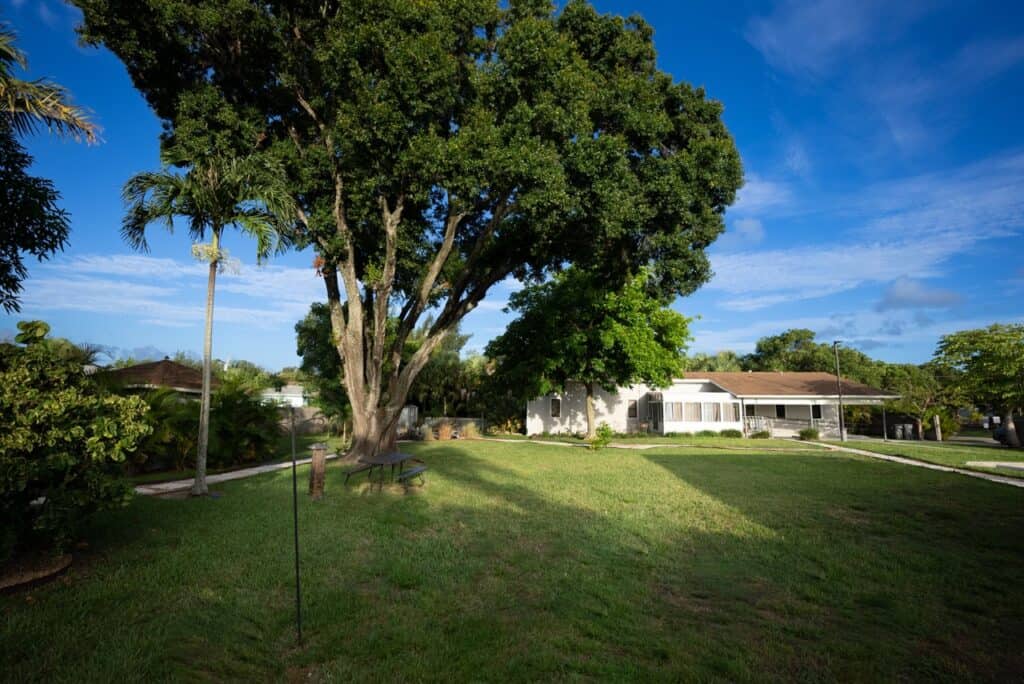Despite having discontinued PCP/Angle Dust (phencyclidine) for humans for anesthetic use by Doctors, some people have developed dependencies and abused PCP because of the mind-altering, hallucinogenic effects it produces. Discover the impact of an Angel Dust addiction on individuals and learn how to overcome it with the support of Olympic’s leading Angel Dust addiction treatment program. Our program is boutique, meaning there are usually only 25 -35 patients at any given time which allows everyone to have an individualized experience. We also follow the matrix model of addiction treatment which allows individuals searching for sobriety to attend an intensive 16-week program that allows for deep work, family integration, medication administration, and adherence along with enough time to implement contingency management techniques.
What is angel dust addiction?

Angel dust addiction refers to the habitual use of and dependency on phencyclidine (PCP), a powerful dissociative drug commonly known as angel dust. PCP was initially developed as an anesthetic, but due to its severe side effects, it was discontinued for medical use. However, it gained popularity as a recreational drug.
Other street names of the Angle Dust are; peace pill, elephant tranquilizer, dust, rocket fuel, and more. It has now been categorized as a Schedule-II substance(1) in the US which means that it is illegal to have and seldomly prescribed by medical professionals.
Characteristics of Angel Dust (PCP):
- Dissociative Effects: PCP causes a disconnection between the user’s thoughts and environment, leading to a feeling of being detached from reality.
- Hallucinogenic Properties: It can produce hallucinations and alter a person’s perceptions of sounds, colors, and their environment.
- Mood Alterations: Users may experience euphoria, a sense of invulnerability, or extreme agitation.
Signs of Angel Dust Addiction:
- Behavioral Changes: Increased aggression, impulsivity, or risk-taking behaviors.
- Physical Symptoms: Numbness, slurred speech, loss of coordination, and dizziness.
- Psychological Symptoms: Severe paranoia, delusions, and disordered thinking.
Risks and Consequences:
- Health Risks: High blood pressure, respiratory distress, seizures, and in extreme cases, coma or death.
- Mental Health: Chronic use can lead to persistent cognitive impairments, mood disorders, and psychotic symptoms resembling schizophrenia.
- Social and Legal Issues: Problems with relationships, employment, and potential legal consequences due to drug-related behaviors.
What to Expect in An Angel Dust Addiction Treatment?
Tailoring PCP treatment to each individual’s unique needs is important. There’s no one-size-fits-all approach; it’s about using various treatments based on individual requirements. That is why the Olympic Angel Dust addiction treatment program is tailored to the individual’s unique specific conditions.
Selecting the appropriate therapy options and personalized support programs can significantly impact your journey toward sober life recovery. Following are the different types of treatment that Olympic offers;
- Dialectical Behavior Therapy
- Cognitive Behavioral Therapy
- 12-Step Support and Facilitation
- Mindfulness-Based Sobriety
- Trauma Therapy
- Group and Individual Therapy
- Motivational Interviewing
The Process of Treating PCP?
Every patient receives different treatment for PCP use. We at Olympic Behavioral Health offer different levels of care to work through their PCP addiction in the best schedule or the severity of the use.
Following are the different levels of care that are included in the process of treating PCP addiction;
- Withdrawal Management
- Residential/Inpatient Treatment
- Partial Hospitalization
- Outpatient Treatment
- Sober Living

Signs and Symptoms of PCP/Angel Dust Addiction
It is important to notice the signs and symptoms of PCP or angel dust in the patients or their loved ones if patients are concerned about PCP use. Depending on how severe these signs and symptoms are, support may be obtained from an addiction treatment center like Olympic Behavioral Health Center.
The following are observable signs of PCP use;
- Intense carvings for the continual use of PCP and loss of control
- Continued use of Angel Dust can maintain a powerful hold on the mind.
- The drug triggers a high euphoria by impacting the brain’s reward system, creating a rush of positive feelings.
- People under the influence of PCP might neglect self-care, and skip hygiene practices like showering, dental care, or grooming.
- Work or school obligations may be disregarded as individuals using PCP start skipping these responsibilities.
- Those addicted to PCP often spend considerable time focused on obtaining and using the drug.
- Mood swings, erratic behaviors, or sudden bursts of anger might occur due to the dissociative effects of PCP.
- Physical health symptoms like slurred speech, muscle spasms, sweating, and increased breathing rate can be observed in PCP users.
- Participation in high-risk activities – Due to the influence of PCP use, they may have unsafe sex, and drive under the influence
- Distance from loved ones – Family and friends become less important as compared with the use of Angel Dust
- Distance from physical activities and hobbies – Substance use disorder may divert them from their normal routine activities and hobbies.
- Sedation – Instead of enjoyable pastimes, they appear to be overly calm
- Hallucinations and Psychosis – Heavy PCP may result in dangerous hallucinations impacting the safety of the user.
- Psychological Symptoms – Amnesia, difficulty in decision-making, and other new mental health conditions are common psychological symptoms
- Weight loss and poor nutrition – Neglect in the nutritional preferences and needs may result in weight loss
Benefits of Angel Dust Addiction Treatment
Participating in a PCP/Angel Dust treatment program offers recovery toward a healthy and stable lifestyle. Opting for angel dust addiction treatment will provide numerous advantages for patients including;
- Being in a secure environment
- Access to a multitude of therapies and treatment programs
- Recovering to daily structured routines
- 24/7 support from mental health professionals
- Making goals for a more fulfilling life
- Continued support even after treatment
- Learning new useful strategies for lifelong use
- Guidance and advice to help strained relationship
Types Of Treatment Offered
Detox
Recovery from Angel Dust addiction often includes detoxification (detox) to remove the drug from the body safely. Angel Dust detox in West Palm Beach, FL, manages withdrawal symptoms and physical and mental health. At the same time, the drug is eliminated from the body.
Medical professionals may provide compassionate care and medications during detox from angel dust to alleviate withdrawal symptoms, such as anxiety, depression, irritability, and insomnia. Detox is essential to rehabbing from addiction, but it is only the first step in the journey.
After detox, addiction treatment often includes various forms of psychotherapy to address addiction’s psychological and behavioral aspects, such as identifying triggers and developing coping strategies. Treatment may also include medication-assisted treatment (MAT) to manage cravings.
Rehabilitation for Angel Dust addiction is a long and challenging route. It is possible to overcome addiction and regain personal drive.
Partial Hospitalization Program
Partial Hospitalization Program (PHP) can be an effective component of a comprehensive treatment plan for Angel Dust addiction.
PHP is a level of care that provides intensive treatment during the day but allows people to return home in the evening.
PHP allows patients to receive treatment while still being able to live at home and participate in other activities, which can be a good option for those who have already been through inpatient.
PHP can be advantageous for individuals who have done inpatient rehab and want to preserve sobriety or for those who have mild to moderate addiction and need structured treatment.
Clients receive medical and psychiatric care as needed during a PHP in West Palm Beach, FL. They receive intensive treatment during the day and can access numerous therapeutic resources as needed.
The effectiveness of a PHP for someone recovering from PCP addiction will depend on several factors, including the person’s commitment, the quality of the program, and the presence of any co-occurring mental health or medical conditions.
Bouncing back from an Angel Dust addiction is a constant progression and involves ongoing effort and maintenance. A PHP can be a vital component of a comprehensive treatment plan. Still, it is just one part of the fight. Participation in aftercare or alumni activities and relapse prevention can help to maintain sobriety.
Intensive Outpatient Program
Our Intensive Outpatient Program (IOP) in West Palm Beach, FL, can be a good option for someone recovering from an Angel Dust addiction as a form of treatment and continuity of care. IOP is a level of care that provides intensive treatment during the day but allows people to return home in the evening.
IOP can be beneficial for individuals who have completed an inpatient or PHP program and need ongoing support to maintain sobriety or for those who have mild to moderate addiction and desires structured treatment.
IOP provides a continuum of care for anyone who has successfully ended an inpatient or PHP program and reduces the risk of relapse.
During an IOP, attendees participate in activities with other clients and receive medical and psychiatric care as needed. They receive intensive treatment during the day and can access applicable resources as needed.
The effectiveness of an IOP for someone recovering from addiction to Angel Dust will depend on several factors, including their commitment, the quality of care, and the presence of any co-occurring mental health or medical conditions.
Coming back from Angel Dust addiction isn’t easy and a comprehensive treatment plan should include IOP. Afterward, continuing participation with previous alumni is highly encouraged.
We Accept Most Insurance Policies As Payment For Treatment
Out-of-network treatment centers may offer specialized services that may not be available through in-network providers.
Choosing between an out-of-network and in-network treatment center for addiction treatment depends on what is most important for the person seeking treatment. Here are some of the benefits of each option:
Benefits of in-network treatment centers:
- Cost: In-network treatment centers are covered by insurance, which can reduce the cost of treatment and make it more affordable.
- Network of support: In-network treatment centers are typically part of a more extensive network of healthcare providers, making it easier to receive ongoing care after treatment.
- Familiarity: In-network treatment centers are located in their local area, providing a sense of familiarity and comfort and making it easier to maintain connections with loved ones.
Benefits of out-of-network treatment centers:
- Access to specialized care: Out-of-network treatment centers may offer focused amenities and options that may not be available through in-network providers.
- Distance from triggers: Out-of-network treatment centers may be located in a different area, which can provide a gap away from the people, places, and situations that may have contributed to the addiction.
- Quality of care: Out-of-network treatment centers may have a reputation for providing high-quality care, which can be particularly important for those with complex or severe addiction issues.
When choosing a treatment program for angel dust addiction, consider any specific needs and circumstances when deciding between an in-network or out-of-network treatment center. If you’re able, research the treatment center and visit it in person to assess the quality of care and the fit to requirements. Seek professional help from a qualified healthcare provider or addiction specialist to determine the situation and recommend the most appropriate course of treatment.
How Long Does Treatment Last?
The length of detox and rehab from Angel Dust can vary depending on factors such as the duration and severity of drug use, the person’s overall health, and the type of detox program used.
Typically, Angel Dust has a half-life of about 7 to 48 hours, meaning it takes that long for half of the drug to be eliminated from the body.
However, complete detoxification of the drug can take several days to weeks.
Medical detoxification from Angel Dust usually lasts several days. It focuses on managing withdrawal symptoms, such as anxiety, depression, insomnia, and other physical symptoms. In some cases, it may require hospitalization or residential detoxification programs to manage severe withdrawal symptoms safely.
However, detox is only the beginning. Depending on the goals for addiction treatment, the Angel Dust rehab in Florida may last several weeks, months, or longer.
Working with a qualified medical or mental health professional helps to develop a bespoke detox and rehab plan that maintains enduring sobriety.
Get Help Today In Florida
Beginning therapy for a PCP addiction at a treatment program far from home is very successful for many. Receiving treatment in a different environment can provide a sense of distance from the people, places, and situations that may have contributed to the addiction.
In addition, treatment far from home may offer a more comprehensive range of services and specialized care, such as specialized attention for patients with co-occurring mental health or medical conditions. They may also have a more serene and peaceful environment.
Always consider specific needs and circumstances when deciding if treatment far from home is the best option. Being far from home and having familiar friends and family networks may be difficult and stressful.
Ultimately, the most effective treatment for PCP addictions will depend on several factors, including specific needs and circumstances, the quality and comprehensiveness of the program, and the devotion of the patient.
Always seek professional help from a qualified healthcare provider or addiction specialist to assess the situation and recommend the most appropriate treatment, whether close to home or far away.
(1 )https://www.justice.gov/archive/ndic/pubs4/4440/4440p.pdf





